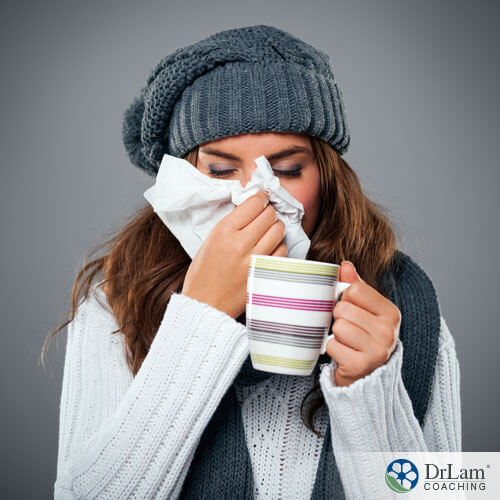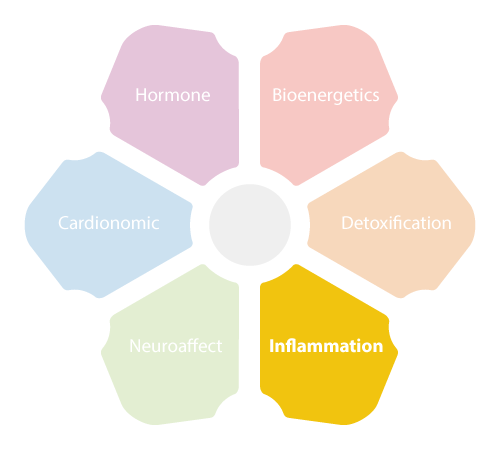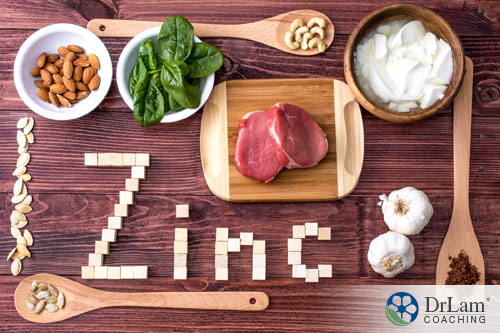 Many cold and flu home remedies have been around for generations, so you’ve probably heard a lot about them. Home remedies for the common cold target everything from a sore throat to colds to headaches. But not all home remedies are created equal, and most are not backed by strong research. And if you are using them on your body, you need to know: do they really work? This is essential, particularly if you have other conditions like adrenal fatigue, and you can’t waste time on recovery strategies that don’t actually work. It’s always a good idea to take a look at the medical research debunking home remedies.
Many cold and flu home remedies have been around for generations, so you’ve probably heard a lot about them. Home remedies for the common cold target everything from a sore throat to colds to headaches. But not all home remedies are created equal, and most are not backed by strong research. And if you are using them on your body, you need to know: do they really work? This is essential, particularly if you have other conditions like adrenal fatigue, and you can’t waste time on recovery strategies that don’t actually work. It’s always a good idea to take a look at the medical research debunking home remedies.
Basically, home remedies for the common cold are supposed to boost the immune system or otherwise improve the health of the body so that it can fight off problems, diseases, and infections on its own. Many vitamin supplements that you are supposedly supposed to take if you have a cold subscribe to this idea. However, recent evidence debunking home remedies has called the effectiveness of this approach into doubt.
The human body actually has a fairly complex system for dealing with invaders like viruses and bacteria. When an intruder enters the body, two things happen. Firstly, the immune system acts to expel the intruder. Other systems in the body also target the invading cells. If the body has encountered the invader before, it uses that memory to fight them off. And if it hasn’t, then it creates memory cells of the invader and what worked against it for next time. This is why you only get chicken pox once, because the memory cells in your body remember it the next time you encounter it and quickly kill off the virus.
Most home remedies for colds are designed to improve the immune system so it can better fight off these invaders. Theoretically, this should shorten the period during which you feel sick or prevent the sickness from taking hold. But some research has been debunking home remedies of this type lately, suggesting that eating extra vitamins won’t help your cold.
The vitamin section at the grocery store is full of “cold remedies,” little pills full of vitamins and minerals that are supposed to boost your immune system to better fight off a cold. But evidence suggests that this isn’t the way.
As long as you’re relatively healthy, supplementing your diet with immune-boosting foods will have little to no effect. This is because the immune system is only impaired in otherwise healthy people when there’s a vitamin or mineral deficiency. When this occurs, supplementing that particular nutrient can be very helpful. But if your diet is balanced and you don’t have any deficiencies, then the extra nutrients will just pass straight out of your system and won’t benefit your immune system in the slightest. However, with the diet most people have today, most people are likely to have deficiencies in some nutrients and vitamins.
This is perhaps the strongest evidence debunking home remedies.
It is worth noting that medical research is very expensive and requires funding. However, most home remedies can’t be patented and sold, so companies can’t earn enough return on investment on them to pay for research in most cases. This means that there is very little high-quality evidence either for or against most home remedies. Poor-quality research, on the other hand, often doesn’t consider complicating variables, like whether patients have vitamin deficiencies or the type of supplement they take. The results from this type of poor-quality study only further confuse the evidence available on home remedies. And there is likely to continue to be little quality evidence in the future.
However, if you are feeling a cold coming on, you need to know what to do now. And if you are under a lot of stress or have a complicating condition like Adrenal Fatigue Syndrome (AFS), it is even more important that you are careful with what you put in your body.
The evidence debunking home remedies for colds is very important if you are under a lot of stress or have AFS, which often causes symptoms that seem like the flu. General fatigue, lack of energy, and a lowered immune system are common side effects of this disorder. This means that if you have AFS, you may be more susceptible to colds and will probably struggle to get rid of them. And if you take extra supplements and binge on health foods to try to manage these problems, you could be wasting your efforts or even causing additional stress and harm to your body due to the inability of your immune system to build a response to the toxins.
 Stress is a major problem when you have AFS because it further taxes your NeuroEndoMetabolic (NEM) Stress Response. This is the system in your body that activates during times of stress and can become overworked over time. When the NEM stress response is active for long periods, as it often is in the stressful modern world, it can cause fatigue in organs that are key to this stress response. Your adrenal glands are an extremely important part of this process as they excrete the stress hormone cortisol, which affects every organ and circuit in your body. When the NEM stress response is active for long periods it causes a high demand for cortisol, which fatigues the adrenals and can result in imbalances and malfunctions throughout your body.
Stress is a major problem when you have AFS because it further taxes your NeuroEndoMetabolic (NEM) Stress Response. This is the system in your body that activates during times of stress and can become overworked over time. When the NEM stress response is active for long periods, as it often is in the stressful modern world, it can cause fatigue in organs that are key to this stress response. Your adrenal glands are an extremely important part of this process as they excrete the stress hormone cortisol, which affects every organ and circuit in your body. When the NEM stress response is active for long periods it causes a high demand for cortisol, which fatigues the adrenals and can result in imbalances and malfunctions throughout your body.
If you have adrenal fatigue, these imbalances may reduce your ability to respond to viruses, cause symptoms, and make you reach for home remedies. And turning to these kinds of remedies for help is fine as long as you don’t overdo supplements and take into account evidence debunking home remedies for colds.
People who have AFS often experience a lot of colds and flu as well as symptoms that are related to these issues. This is usually because of imbalances in the inflammation circuit. This is the circuit of your NEM that is primarily responsible for keeping your body free of infections, viruses, and bacteria. It includes the gut, the microbiome, and the immune system, and these systems work together to keep the body healthy.
However, when you have AFS, this circuit often becomes unbalanced. Stress causes a build-up of metabolites, the results of metabolic activity, and it can also cause chronic inflammation throughout the body. This is a very damaging situation that will not only create a toxic environment inside your body, but it may also hinder your body’s efforts to rid itself of invading viruses and infections. As a result, many people with AFS have an impaired immune system which results in frequent infections.
This can be a very dangerous situation. Not only is stress induced inflammation dangerous on its own and linked to issues such as heart disease and cancer, if not addressed then AFS will gradually worsen over time. This can result in adrenal crashes and even full body collapse. That’s why it’s important that you seek out strategies to reduce inflammation and boost your immune system when you have this disorder. However, if you’re turning to home remedies with this aim in mind, then you need to know what works and what doesn’t.
The evidence debunking home remedies suggests that loading up on healthy foods to fight colds isn’t effective unless you have a deficiency, but many people with AFS have vitamin and mineral deficiencies due to all the extra hormones their bodies make to fight stress. Consider talking to your doctor and getting tested for deficiencies. Supplements can also cause paradoxical reactions in people with AFS with sensitive systems, so make sure you talk to someone knowledgeable in AFS before adding a bunch of supplements to your diet, even if you are hoping it will help you fight off a cold.
There are certain supplements which evidence suggests may help you fight off colds and infections. These remedies are not put through the kind of rigorous clinical trials as pharmaceutical medication, meaning that smaller groups of participants are often used and not as much work is done ensuring the study is double-blind or controlling the variables. Future research debunking home remedies may disagree with these studies. The most important issue seems to be that many studies didn’t test beforehand to check for deficiencies. This could mean that all the benefits noted were caused by the correction of the nutrient deficiency rather than by any immune boosting effects.
However, the currently available evidence for these supplements suggests:

If you are feeling a cold coming on, you may be ready to do whatever you can to get rid of it. And taking some extra supplements or eating extra healthy foods may seem like a good way to do it. After all, you probably eat or use most of them every day, so you know they’re safe. But the real question is whether they’re effective. If you’re struggling with AFS and your system is already sensitive, you don’t want to waste time on strategies that don’t work or that could worsen symptoms. Often, trying random supplements without the direction of your physician or an adrenal fatigue specialist may actually worsen your condition. Evidence debunking home remedies shows that these strategies are only helpful if you have a vitamin or nutrient deficiency, so make sure you know what your body needs before you feel a cold coming on, and do your research.
© Copyright 2020 Michael Lam, M.D. All Rights Reserved.
Home remedies are often seen as a safe and natural alternative to harsher methods, and sometimes that’s true. However, you need to know what the research debunking home remedies for the common cold says so you can avoid wasting your time on strategies that don’t work.
